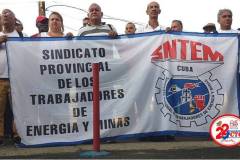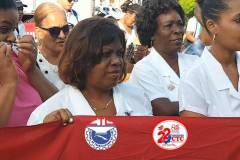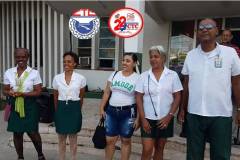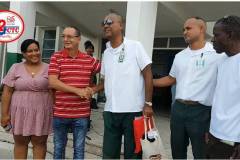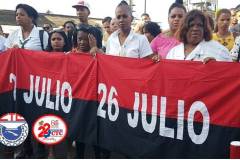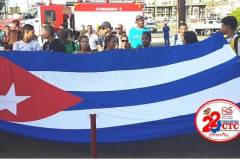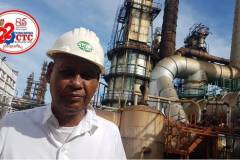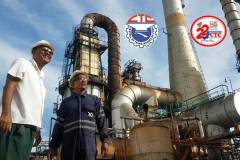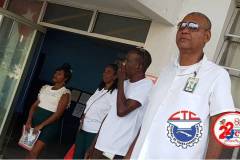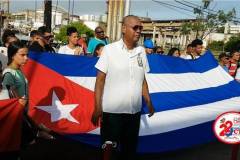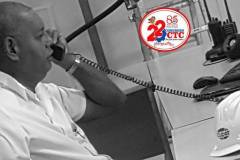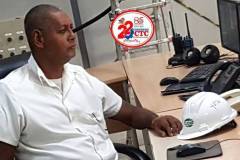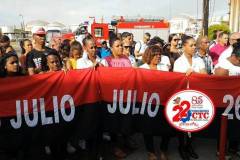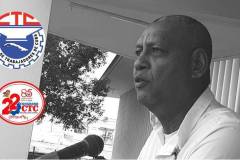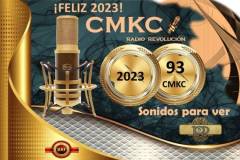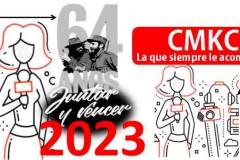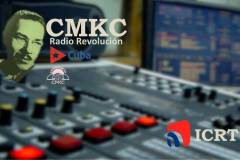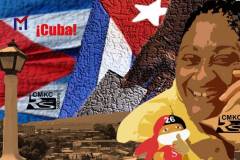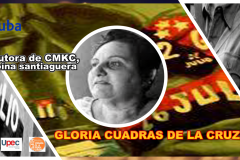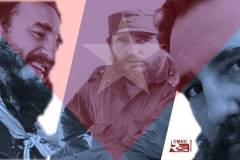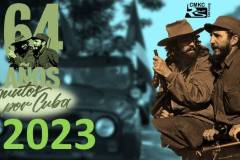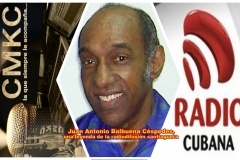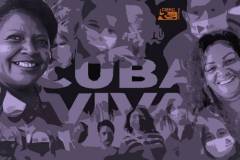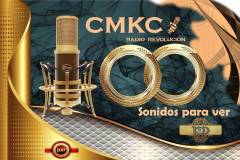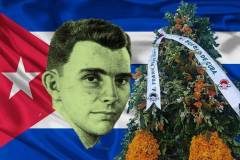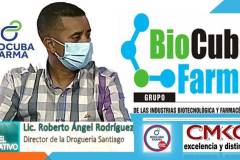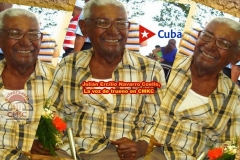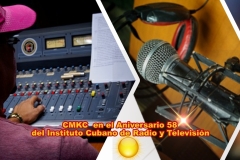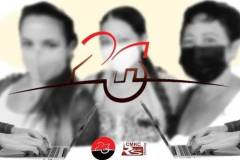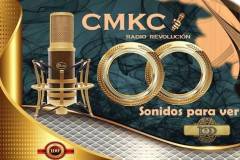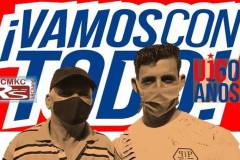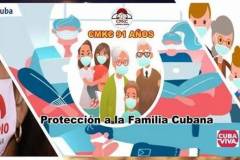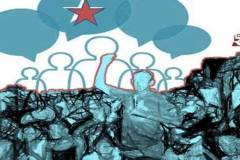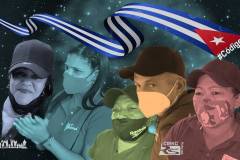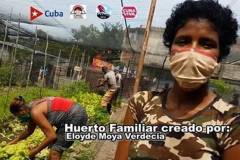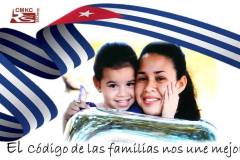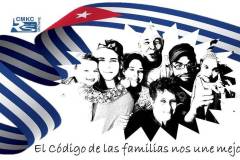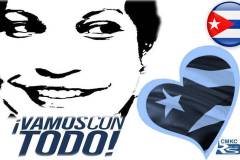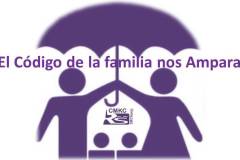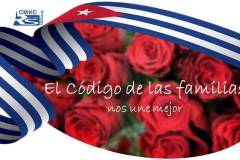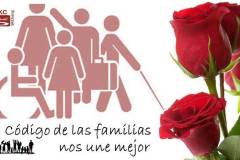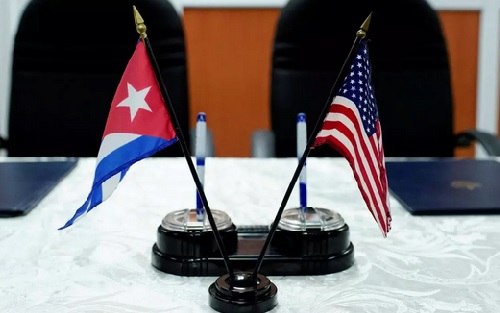

RHC brings us an interview with Johana Tablada, Deputy Director for U.S. Affairs at the Cuban Foreign Ministry.
She comments about a U.S. «confidential report» that was declassified this week, saying there was no concrete scientific evidence pointing to Cuba’s direct involvement in the alleged ‘sonic attacks’ against U.S. diplomats stationed at the U.S. Embassy in Havana.
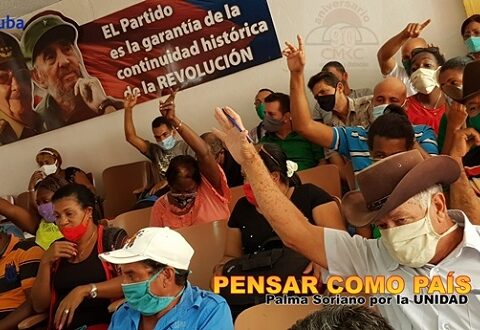
Posted in Inglés
The Economy Restructuring Process in Santiago de Cuba
Author: Santiago Romero Chang Published Date: 1 febrero 2021 Leave a Comment on The Economy Restructuring Process in Santiago de Cuba
The Economy Restructuring Process in Santiago de Cuba is moving forward with the productive and service activity towards the economic vitality of the province… Seguir leyendo
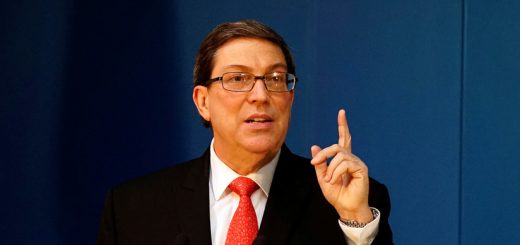
Posted in Inglés
US deliberately lies when it labels Cuba as terrorist, FM says
Author: Santiago Romero Chang Published Date: 19 enero 2021 Leave a Comment on US deliberately lies when it labels Cuba as terrorist, FM says
Cuba,. Foreign Minister Bruno Rodriguez said on Monday that the US president and the secretary of State are deliberately lying when they call Cuba a sponsor of terrorism.
Cuban foreign minister rejects social media’s manipulation
Cuba rejects new unfounded accusations on health issues reported by the staff of US Embassy
- Havana, December 16 (RHC)– The Cuban Academy of Sciences refuted a report by the U.S. National Academies of Science, Engineering, and Medicine, which links high-powered microwaves to alleged health incidents suffered by U.S. diplomats and their families in Havana.
The research disclosed by the Permanent Committee of the referred institution alleges that the energy of radiofrequency pulsed and directed is the «most plausible mechanism» to explain the hypothetical incidents.
In a statement to the national and foreign press, Dr. Luis Velázquez Pérez, president of the Cuban Academy of Sciences, affirmed that «the report does not provide scientific evidence of the existence of high-intensity radio frequency waves in the area where the diplomats were located.» He described the thesis exposed by the Americans as an «unlikely hypothesis, and indeed not a proven fact.
The Cuban Academy of Sciences disagreed on the conclusion of the causes of the suffering, rejected the politicization of the issue, and called for collaboration between both countries to solve the matter, which served as a pretext for the withdrawal of most of the personnel of the U.S. Embassy in Havana in 2017.
US deliberately lies when it labels Cuba as terrorist, FM says
Cuba condemns once again false accusations about acoustic incidents
- Havana, December 10 (RHC) The Cuban Minister of Foreign Relations, Bruno Rodríguez, reiterated on Thursday the falsity of the accusations about alleged acoustic attacks made against US diplomats in Havana.
On Twitter, Rodriguez referred to a recent study by that northern nation’s National Academy of Sciences that confirmed the absence of any alleged aggression evidence.
The maneuver served as a pretext for Donald Trump’s administration to withdraw part of its diplomatic staff from the Cuban capital and damage relations between the two countries resumed in 2015 after a 54-year break.
The report published on the alleged attacks against US diplomats vindicates Cuba’s claim on the need to cooperate to clarify the facts and confirm the absence of any evidence that an attack had taken place, Rodríguez stated in his message.
In another tweet, he pointed out that ‘those who oppose a respectful relationship between Cuba and the United States opportunistically manipulated the fact to attack Cuba and bilateral relations.’
Since the first notification of those alleged events in August 2017, Cuba developed an investigation on the case. It expressed to US authorities the willingness to cooperate with the inquiry to determine the possible causes of the incident.
We are Cuba Viva, the country that resists and triumphs
Scientists affirm that so-called ‘Havana Syndrome’ lacks evidence
The Havana Syndrome, a set of symptoms reportedly experienced by U.S. and Canadian diplomats in Cuba, is a media fabrication, scientists said earlier this week in Havana.
«The Havana Syndrome related to sonic attacks on U.S. and Canadian diplomats in Cuba has been labelled by journalists, not by scientists,» said Mark Rasenick, professor with the College of Medicine at the University of Illinois, at the opening session of an academic event, which gathered experts from Cuba, the United States, Canada and Britain.
The academic noted the importance of the international scientific community to focus on seeking the truth behind the incidents instead of analyzing only one part of the problem.
«It is a general attempt not to defy anybody, but to determine what is going on and how we do the best we can through science,» said Rasenick.
The U.S. government in February 2017 first denounced Cuba for using acoustic weapons that caused its diplomatic personnel on the island suffered from mysterious sickness, but offered no evidence.
Canada echoed the U.S. allegations, saying that symptoms such as dizziness, memory loss and hearing problems had been identified among its diplomats.
Mitchel Valdes, director of Havana’s Neuroscience Center, said he inclines to assumptions that the sickness of some diplomats were caused by other reasons.
«Cuba gives no credit to assumptions of sonic attacks. That is absurd. The idea of someone chasing diplomats all over the city … is nonsense, for it violates scientific principles. That’s science fiction,» he said, adding that Cuban experts are working on a joint research with their Canadian counterparts.
«We still need to clarify health problems involving U.S. and Canadian diplomats in Cuba. We are open to study different hypothesis. We believe in transparent and sincere dialogues,» he said.
On the other hand, Alon Friedman, professor with the Brain Repair Center at Dalhousie University in Canada, said it is important to study the topic from a multidisciplinary perspective.
«We are trying to collaborate with Cuban scientists to figure out the cause of this sickness,» he said.
Allegations of sonic attacks set the start of increasing tensions between Cuba and the United States after the improvement of diplomatic relations during former U.S. President Barack Obama’s administration.
Cuban authorities have repeatedly dismissed U.S. government’s accusations of sonic attacks on foreign diplomats for lack of scientific evidence.
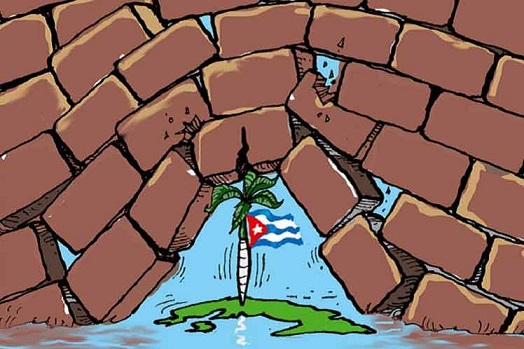
made in USA
Millions for democracy made in USA
Although the effort has never produced the results expected by its organizers, subversion against Cuba continues to be a profitable business involving millions of dollars.
Disguised in multiple trappings, through agencies, companies and organizations, which rarely offer public information on the management of their funds, the financing of actions intended to undermine the Revolution have exceeded 249.5 million dollars, over the last two decades.
This has been investigated and published by the Cuba Money Project, a website devoted to covering stories on U.S. government programs and projects related to the island.
In 2020 alone, a report based on public information found on the digital portals of agencies like the U.S. Agency for International Development (USAID), estimates the total allocated to finance subversive initiatives at 2.5 million.
Diverse voices in Santiago and the same trunk in defense of Cuban culture

